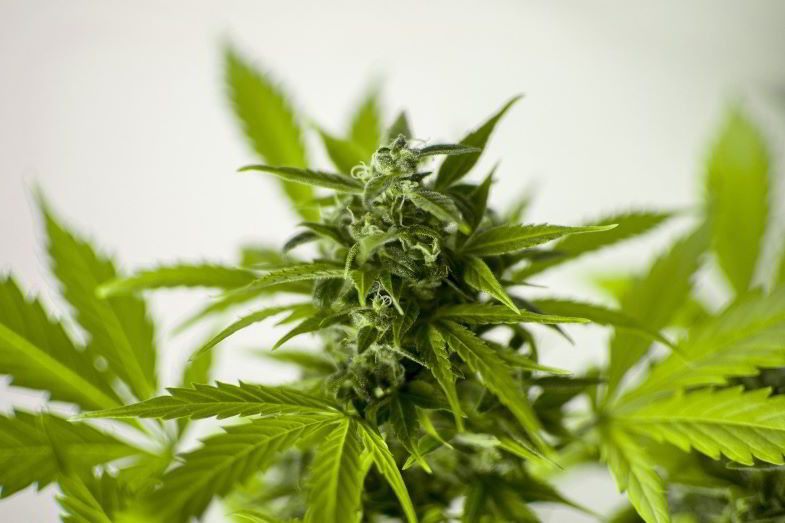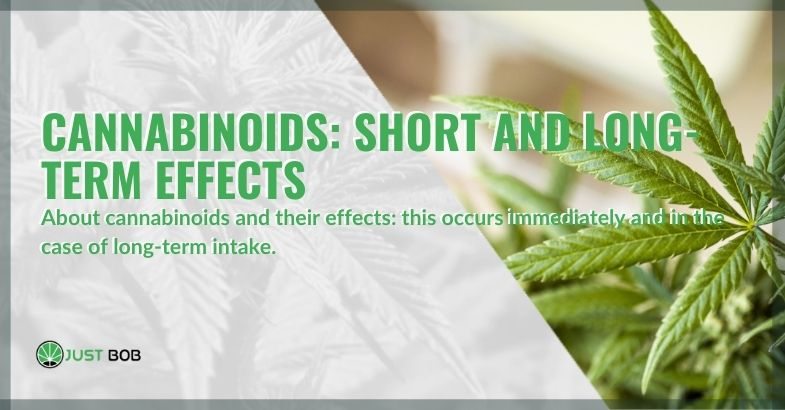About cannabinoids and their effects: this occurs immediately and in the case of long-term intake
Regarding CBD cannabis and illegal marijuana, the focus is always on the effects that cannabinoids in it can have on the body, including CBD, THC and CBG.
In particular, many wonders whether these substances, when taken for a long consecutive period, can, in addition to the immediate effects of absorption, positively influence the functioning of our body.
What are the short- and long-term effects?
Here’s a look at cannabinoids and their effects.
Cannabinoids and effects: there is a big difference between legal and illegal marijuana!
Before talking about cannabinoids and effects, it is essential to distinguish between light (or industrial) hemp (CBD weed) and illegal marijuana.
The first is considered law compliant in the US and in Europe since it has less than 0.2% THC (a cannabinoid with psychotropic effect) and a high level of CBD.

The one that is considered illegal is marijuana with a high THC level that, when consumed, can alter the perception of reality more or less intensively, depending on the case.
Nevertheless, it is easy to guess that cannabinoids in CBD flowers will have one kind of effect, while having very different ones in the illegal.
Now let’s look at the differences between the short- and long-term effects of the most well-known cannabinoids.
Read also: Cannabinoid receptors: mechanism of action and association with cannabis
Short-term effects of cannabinoids
Let’s first talk about the effects of THC, the world’s best-known and most accused cannabinoid.
The immediate effects of THC are multiple and can vary considerably depending on the consumed amount and each person’s body. However, the most common ones can be grouped in this list:
- Improved mood and euphoria
- Munchies
- Disinhibition
- Increased creativity
- Fear, rapid heartbeat and panic attacks
- Concentration problems
- Distorted perception of reality.
On the other hand, the immediate effects of CBD intake are incredibly different. This cannabinoid, present at high concentrations in legal hemp and its derivatives (CBD oil, cbd hash, etc.), has no psychotropic effects and therefore does not alter the perception of reality of those who consume it.
On the contrary, cannabidiol (CBD) can have these effects, even in this case, more or less intensely depending on the body:
- It reduces inflammation and pain associated with different pathologies
- It reduces anxiety and sleep problems (insomnia)
- Because of its anti-convulsion properties, it reduces the number of epileptic seizures.
- It can calm the feeling of nausea
- It may reduce the body’s absorption of certain medications
- If taken in high doses, hypotension and diarrhea may occur.
… What about the CBG?
Little is known about this cannabinoid, and the reason is that this substance is present in tiny proportions in cannabis and hemp. Cannabigerol (or CBG) has remained in the shadows in the past, which is why studies on this subject have recently been extended.
Immediate effects include:
- Reduced pain;
- Reduced inflammation (even locally on the skin)
- Decreased muscle tension
- Helps relaxation.
The duration of short-term effects is subjective. It depends on each person’s body, as well as the doses of cannabinoids taken.

Long-term effect of cannabinoids
Given the effects that cannabinoids can cause immediately in the body after ingestion, it is time to learn more about the impact these substances can develop in the human body if taken over an extended period.
Before proceeding, it is essential to specify that the long-term effects of cannabinoids are studied on an ongoing basis and that it would be risky to speak in absolute numbers at this time.
However, the results of many studies have shown in part what follows.
Among the long-term effects of THC there are:
- substance dependence and addition (you need to take more and more THC the impact of the initial phase of use);
- it appears that, in some cases, THC absorption can speed up metabolism;
- cognitive and memory problems have been reported in different subjects;
- in addition, in some people (already predisposed), prolonged use of cannabis with high THC content may promote psychosis and/or schizophrenia development.
Among the long-term effects of CBD these are some of the most common:
- According to some laboratory studies on mice and test patients, CBD appears to slow the growth of specific cancer cells.
- With the introduction of this cannabinoid in some medications, there has been a significant improvement in lifestyle in patients with multiple sclerosis.
- It appears that CBD may have immunomodulatory properties that occur in different ways on a case-by-case basis. In some cases, the immune defenses are strengthened. In others cases, they are reduced.
- Some studies have suggested that this substance can protect neurological cells.
As expected, studies are still ongoing and require further research, but the long-term adverse effects of CBD versus THC appear to be “almost” non-existent.
Regarding cannabigerol (CBG) long-term effects, the following data were observed:
- This substance may develop new brain cells in the human body (studies are still ongoing).
- It could affect the absorption of certain medications.
Read also: CBD and Drug Tests: Is cannabidiol detected in blood and urine tests?
… What about the other cannabinoids? What is their impact on the human body?
Those are not the only Cannabinoids found in legal cannabis. There are many others.
But since their presence in plants is of only small percentages, research on their effects still needs to be carried on.
Today, the interest for effects of substances produced by legal (and not legal) cannabis has increased, so besides laboratory tests carried out on guinea pigs, we will soon discover a little more about experiments involving humans.
While waiting for the new results, you can now buy CBD products.
If you like collecting hemp and its derivatives such as CBD oil and legal hash, visit our CBD online shop, JustBob … We’re waiting for you!



